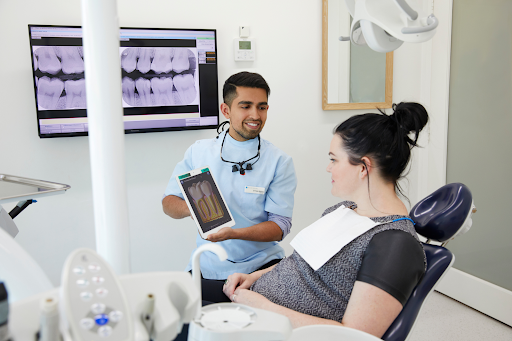Dental implants have become a highly effective solution for replacing missing teeth, offering both functional and aesthetic benefits. If you’re considering dental implants, understanding what to expect during your initial visit is crucial for a smooth and successful treatment journey. This guide will help you prepare for your first consultation and give you insight into what to expect from dentists taking new patients and the process of dental implants.
Dentists Taking New Patients: What to Look For
Choosing the right dentist for your implant procedure is the first step in ensuring a successful outcome. When seeking dentists taking new patients, consider the following factors:
- Experience and Expertise: Look for dental professionals who specialize in implantology. An experienced dentist will be familiar with the latest techniques and technology, which can significantly impact the success of your implant.
- Reputation and Reviews: Research potential dentists by reading patient reviews and testimonials. A dentist with a strong reputation and positive feedback is likely to provide high-quality care.
- Accreditation and Certification: Verify that the dentist is certified by relevant professional bodies. Accreditation from organizations such as the American Academy of Implant Dentistry (AAID) or the International Congress of Oral Implantologists (ICOI) indicates a high level of expertise.
- Initial Consultation: A good dentist will offer a comprehensive initial consultation to evaluate your oral health and discuss your treatment options. This consultation is an opportunity for you to ask questions and get a feel for the dentist’s approach and communication style.
The Dental Implants Process: What to Expect
Understanding the dental implant process can help ease any anxieties you may have about the procedure. Here’s a breakdown of what to expect during your initial visit and the steps involved in getting dental implants.
1. Comprehensive Examination
During your initial visit, the dentist will perform a thorough examination of your oral health. This includes:
- Medical History Review: The dentist will review your medical history to ensure there are no contraindications for dental implants. Conditions such as uncontrolled diabetes or certain medications can impact the healing process.
- Oral Health Assessment: The dentist will assess the condition of your gums and bone structure. Dental implants require a sufficient amount of healthy bone to support the implant, so this evaluation is crucial.
- Imaging: Advanced imaging techniques such as X-rays or 3D scans may be used to create detailed images of your mouth. These images help the dentist plan the placement of the implants accurately.
2. Treatment Planning
Based on the examination and imaging results, the dentist will develop a personalized treatment plan. This plan will outline the number and placement of implants needed, as well as any preparatory procedures required, such as bone grafting if your jawbone is insufficient.
3. Discussion of Options
The dentist will discuss the various options available to you, including the type of implants and prosthetics that best suit your needs. They will also explain the anticipated timeline and cost of the procedure, helping you make an informed decision.
4. Pre-Procedure Instructions
Before the procedure, you will receive instructions on how to prepare. This may include dietary restrictions or guidelines on medication. Following these instructions is essential to ensure a smooth procedure and optimal healing.
Preparing for Your Implant Procedure
Once your initial visit is complete, and you’ve decided to proceed with dental implants, here’s what you can expect in the subsequent stages:
- Surgical Procedure: The actual implant placement is typically performed under local anesthesia. The dentist will place the titanium implant into your jawbone, where it will eventually fuse with the bone in a process called osseointegration.
- Recovery and Aftercare: After the implant is placed, there will be a recovery period during which you may experience swelling and discomfort. Your dentist will provide aftercare instructions to manage these symptoms and promote healing.
- Prosthetic Placement: Once the implant has fully integrated with the bone, a custom-made crown or prosthetic will be attached. This final step completes the restoration of your missing tooth.
Conclusion
Choosing to undergo dental implant surgery is a significant decision that can greatly enhance your quality of life. By understanding what to expect during your initial visit and the overall dental implant process, you can approach your treatment with confidence. Make sure to choose a dentist who is experienced, well-reviewed, and able to take new patients. This preparation will help ensure a successful outcome and a positive experience with your dental implants.
If you have any concerns or questions, don’t hesitate to discuss them with your dentist. They are there to guide you through each step and ensure that you are comfortable and informed throughout your dental implant journey.


Comments